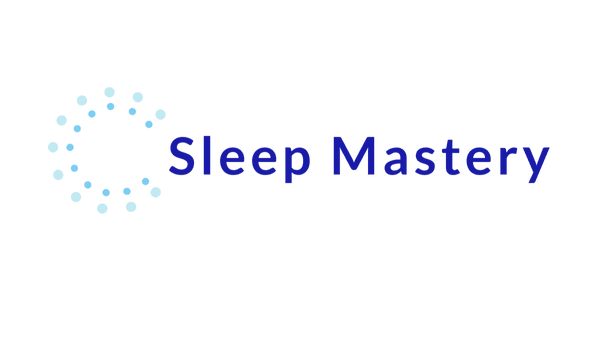
Insomnia - What it means and what it doesn't.
Insomnia, also known as sleeplessness, is a common sleep disorder. Characterized by difficulty falling asleep, staying asleep, or experiencing non-restorative sleep despite having time and opportunity. This can lead to daytime sleepiness, low energy, irritability, and difficulty concentrating.

Insomnia can be:
- Acute (short-term): Lasting from a few days to a few weeks, often triggered by stress or changes in sleep schedule or environment.
- Chronic (long-term): Occurring at least three nights a week for three months or longer, often linked to underlying medical or psychological conditions or persistent poor sleep habits.
There are different types of insomnia based on the specific sleep problem:
- Sleep-onset insomnia: Difficulty falling asleep at the beginning of the night.
- Sleep-maintenance insomnia: Difficulty staying asleep throughout the night, characterized by frequent awakenings or trouble returning to sleep.
- Early-morning awakening (terminal insomnia): Waking up much earlier than desired and being unable to fall back asleep.
- Mixed insomnia: Experiencing a combination of difficulties falling asleep, staying asleep, and waking up too early.
- Paradoxical insomnia (sleep state misperception): A condition where individuals underestimate their sleep time, believing they sleep much less than they actually do.
Numerous factors can cause insomnia, including:
- Stress and anxiety: Worries about work, school, health, finances, or relationships.
- Mental health disorders: Such as depression, anxiety disorders, and PTSD.
- Poor sleep habits: Irregular sleep schedules, napping during the day, stimulating activities before bed, and an uncomfortable sleep environment.
- Circadian rhythm disruptions: Jet lag, shift work, or frequent changes in sleep schedule.
- Medical conditions: Chronic pain, respiratory problems, overactive thyroid, neurological disorders, and sleep disorders like sleep apnea and restless legs syndrome.
- Medications: Certain antidepressants, stimulants, and blood pressure medications.
- Substances: Caffeine, nicotine, and alcohol.
- Age: Sleep patterns often change with age, and older adults are more prone to insomnia.
- Hormonal changes: During menstruation, pregnancy, and menopause.
- If you experience persistent difficulties with sleep, it's advisable to consult a healthcare professional to identify the underlying cause and discuss appropriate management strategies.
What you can do about it?
Conquering insomnia often requires a multifaceted approach that addresses the underlying causes and promotes healthy sleep habits. Here are some of the most effective methods:
- Cognitive Behavioral Therapy for Insomnia (CBT-I): This is widely considered the gold standard treatment for chronic insomnia and is often more effective in the long term than sleep medications. CBT-I helps you identify and change the thoughts and behaviors that contribute to your sleep problems. Key components include: * Stimulus Control: Reassociating your bed with sleep by only going to bed when sleepy and getting out of bed if you can't fall asleep within 20 minutes. * Sleep Restriction: Temporarily limiting your time in bed to match your actual sleep time, which can improve sleep efficiency. * Sleep Hygiene Education: Learning about and implementing healthy sleep habits. * Cognitive Therapy: Identifying and challenging negative thoughts and beliefs about sleep. * Relaxation Techniques: Practicing methods to reduce arousal and promote calmness before bed.
- Consistent Sleep Schedule: Going to bed and waking up at the same time every day, even on weekends, helps regulate your body's natural sleep-wake cycle (circadian rhythm).
- Optimize Sleep Hygiene: This involves creating a sleep-conducive environment and adopting healthy habits: * Bedroom Environment: Ensure your bedroom is dark, quiet, and cool. Use blackout curtains, earplugs, or a fan if needed. * Comfortable Bed: Make sure your mattress, pillows, and bedding are comfortable. * Avoid Stimulants: Limit caffeine and nicotine, especially in the hours leading up to bedtime. * Limit Alcohol: While it might initially make you feel sleepy, alcohol can disrupt sleep later in the night. * Avoid Heavy Meals and Excessive Fluids: Don't eat large meals or drink a lot of liquids close to bedtime. * Regular Exercise: Engage in regular physical activity, but avoid intense workouts close to bedtime. * Limit Screen Time: The blue light emitted from electronic devices can interfere with melatonin production. Avoid screens for at least an hour before bed.
- Develop a Relaxing Bedtime Ritual: Create a consistent routine to signal to your body that it's time to wind down. This could include: * Taking a warm bath or shower. * Reading a physical book (not on a screen). * Listening to calming music or a podcast. * Practicing relaxation techniques like deep breathing, meditation, or progressive muscle relaxation.
- Manage Stress and Anxiety: Address underlying stress or anxiety that may be contributing to insomnia. Techniques include: * Mindfulness and meditation. * Journaling about your worries earlier in the evening. * Spending time on relaxing hobbies.
To read more on the research on sleep diaries and insomnia, we would recommend Physiopedia.
Keeping a sleep journal can be a really insightful way to tackle insomnia. It helps you become a detective on sleep patterns and the things that might be messing with them. Here's how it can be so beneficial:
- Uncovering Hidden Patterns and Triggers: Think of your sleep journal as a logbook of your nights (and even some of your days!). By consistently noting things down, you can start to see connections you might not have noticed before. For example, you might realize that you always have a harder time falling asleep after you've had caffeine past a certain time, or on days when you've had a particularly stressful work meeting. These patterns can reveal specific triggers that are contributing to your insomnia.
-
Tracking the Nitty-Gritty of Your Sleep: It's easy to have a general feeling about how well you slept, but a sleep journal encourages you to be more precise. By recording things like what time you went to bed, how long it took you to fall asleep, how many times you woke up during the night (and for how long), and what time you woke up, you get a much clearer picture of your actual sleep quantity and quality. This objective data can be really different from your subjective perception and can highlight specific areas of difficulty.
-
Evaluating Your Sleep Hygiene Habits: Your sleep journal can prompt you to think about your daily routines and how they might be impacting your sleep. You can track whether you're sticking to a regular sleep schedule, if you're engaging in relaxing activities before bed, the comfort of your sleep environment, and your intake of things like caffeine and alcohol. This awareness can motivate you to make positive changes to your sleep hygiene.
-
Monitoring the Effectiveness of Strategies: If you start trying new things to improve your sleep – maybe you're practicing relaxation techniques, changing your diet, or even taking medication – your sleep journal becomes a way to track how well these strategies are actually working. You can see if there's a noticeable improvement in your sleep patterns over time, which helps you and your doctor figure out the most effective approaches for you.
-
Providing Valuable Information to Healthcare Professionals: When you talk to your doctor or a sleep specialist about your insomnia, a detailed sleep journal is like gold! It gives them a much clearer and more accurate picture of your sleep issues than just relying on your memory. This information can be crucial for diagnosis and for tailoring a treatment plan that's specific to your needs.
To get the most out of a sleep journal, try to:
- Be consistent: Aim to fill it out every day, ideally first thing in the morning and maybe a quick entry before bed.
-
Be detailed: The more information you include (like your mood, activities before bed, any medications), the more helpful it will be.
-
Be honest: Record things as accurately as you can.
-
Keep it handy: Keep your journal and a pen by your bed so it's easy to jot things down.
-
Review it regularly: Look for trends and patterns over weeks or months.
- Share it with your doctor: Bring your journal to any appointments you have about your sleep.
Essentially, a sleep journal empowers you to become an active participant in understanding and overcoming your insomnia. It transforms vague feelings of poor sleep into concrete data. This data can guide you and your healthcare providers towards effective solutions.
